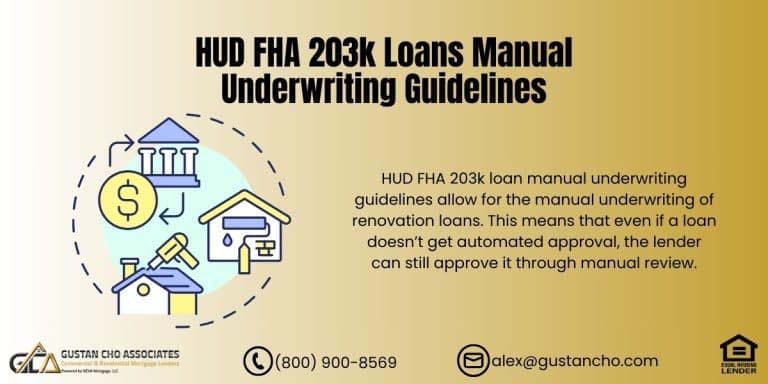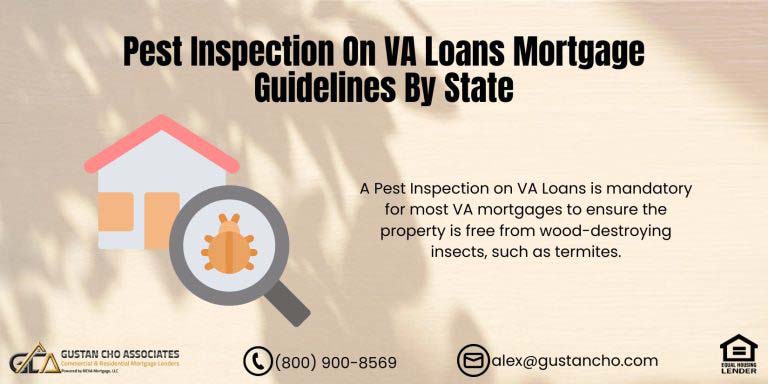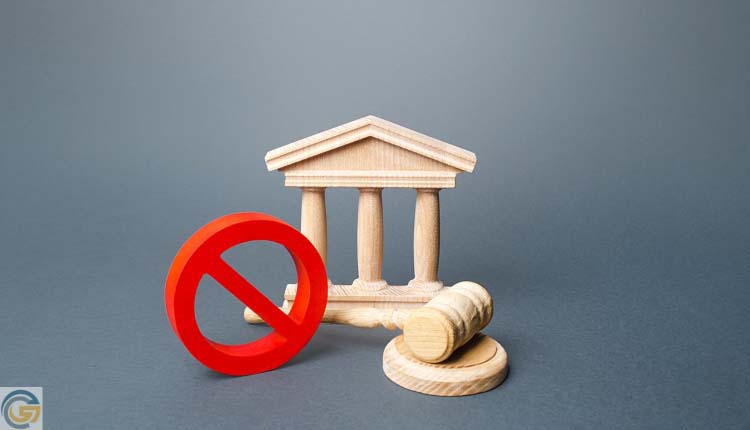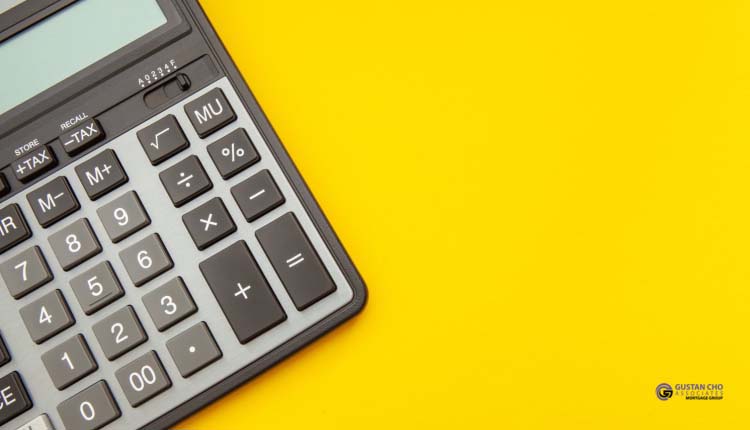In this blog, we will cover the Fannie Mae Chapter 13 dismissal guidelines on conventional loans. One of the most frequently asked questions at Gustan Cho Associates is what is the eligibility requirements to qualify for a conventional loan after Chapter 13 Bankruptcy dismissal. Homebuyers can qualify for FHA and VA loans with no waiting period requirements if the Chapter 13 Bankruptcy dismissal was voluntary such as an early payoff or Chapter 13 Bankruptcy Buyout. However, what is the Fannie Mae Chapter 13 dismissal guidelines on conventional loans? In the following paragraphs, we will discuss the Fannie Mae Chapter 13 Bankruptcy dismissal guidelines on conventional loans.
What Is Chapter 13 Bankruptcy?
Chapter 13 Bankruptcy is a federal debt-assistance law to help consumers re-organize their debt. There are specific mortgage guidelines for borrowers who need to qualify for a home loan during or after Chapter 13 Bankruptcy. VA and FHA Loans allow for borrowers to qualify during the Chapter 13 Bankruptcy Repayment Period with Trustee Approval. Fannie Mae and Freddie Mac are the two mortgage giants that set conforming guidelines on conventional loans. Borrowers cannot qualify for conventional loans during Chapter 13 Bankruptcy repayment. There are certain mortgage guidelines when it comes to qualifying for conventional loans with Chapter 13 Bankruptcy. In this article, we will cover and discuss Fannie Mae Chapter 13 Dismissal Guidelines On Conventional Loans.
How Do Bankruptcies Work?
Consumers can file Chapter 7 or Chapter 13 Bankruptcy. Chapter 7 Bankruptcy is total liquidation. It is often for consumers with little to no assets and little to no income. Consumers who file Chapter 7 Bankruptcy can get all of their debts discharged and have a fresh financial start in life. It normally takes 90 days from the filing of Chapter 7 Bankruptcy to get the courts to get the debts discharged. Chapter 13 Bankruptcy is for consumers with steady jobs as well as assets to protect. A percentage of the consumer’s income is set aside by the Trustee. Once you file Chapter 13 Bankruptcy, you are going to get assigned a bankruptcy trustee.
A bankruptcy Trustee is a lawyer appointed by the U.S. Bankruptcy Courts to oversee the petitioner once they file for Chapter 13 Bankruptcy.
The trustee will advise and oversee the petitioner from the time they file bankruptcy until the bankruptcy repayment period is over. The trustee will then distribute the percentage of the petitioner’s income and pay creditors accordingly. The payment plan is normally set up for 36 to 60 months. After the payment plan is over, the U.S. Bankruptcy Courts will discharge all remaining debts. After the discharge of Chapter 13 Bankruptcy, the consumer has no remaining debts he or she is responsible for. Homebuyers need bankruptcy trustee approval if they intend to buy or refinance a home during the Chapter 13 Bankruptcy repayment plan.
Recently Had a Chapter 13 Dismissed? See If You Qualify Sooner Than You Think
Fannie Mae has specific rules after a Chapter 13 dismissal—and they’re different from discharge rules
Waiting Period To Qualify for a Mortgage After Chapter 13 Bankruptcy Dismissal
Qualifying for a mortgage after a Chapter 13 bankruptcy dismissal can be challenging, but it’s not impossible. There are waiting period requirements depending on the mortgage loan program. In this section, we will consider factors to be taken into consideration. Time since the Chapter 13 Bankruptcy dismissal is taken into consideration. Lenders typically want to see a waiting period after bankruptcy before considering you for a mortgage. This waiting period can vary depending on the loan program you’re applying for. Chapter 13 bankruptcy dismissals are generally shorter than Chapter 7 bankruptcy dismissals.
Fannie Mae Chapter 13 Dismissal Guidelines on Credit Scores
Your credit score will significantly affect your ability to qualify for a mortgage. While bankruptcy can significantly negatively impact your credit score, it’s not the only factor lenders consider. It will improve your chances if you’ve been able to rebuild your credit since the dismissal and maintain a good payment history. Lenders will also examine your current financial situation, including your income, employment history, and debt-to-income ratio. Mortgage underwriters want to ensure that you can repay your income and make the mortgage payments. A larger down payment shows the borrower has skin in the game and shows lenders the borrower can offset a less-than-perfect credit history. If you can afford a large down payment, it may increase your chances of getting approved for a mortgage.
Fannie Mae Chapter 13 Dismissal Guidelines on Lender Requirements
Different lenders have different criteria for approving mortgages, so shopping around and comparing offers from multiple lenders is essential. Some lenders may be more willing to work with borrowers with a bankruptcy record than others. It’s crucial to speak with a mortgage lender or financial advisor who can assess your situation and provide guidance on the steps you can take to improve your chances of qualifying for a mortgage after a Chapter 13 bankruptcy dismissal.
Qualifying For Mortgage During and After Chapter 13 Bankruptcy
Homebuyers can qualify for mortgages during and after Chapter 13 Bankruptcy. VA and FHA loans allow borrowers to qualify for home loans during the Chapter 13 Repayment Plan after one year of timely payments to the Trustee. Conventional loans do not allow borrowers to qualify during the Chapter 13 Repayment Period. However, borrowers can qualify for conventional loans after the Chapter 13 discharge date after meeting the mandatory waiting period requirements.
Fannie Mae Chapter 13 Dismissal Guidelines on Waiting Period For Conventional Loans
Fannie Mae Chapter 13 Dismissal Guidelines on Conventional loans is different than FHA loans. With FHA and VA loans, there is no waiting period after Chapter 13 Bankruptcy dismissal to qualify. As long as the borrower has 12 months of timely payments in the past 12 months, they can qualify for FHA loans. There is no waiting period after the Chapter 13 Bankruptcy discharge date to qualify for VA and FHA loans. However, this is not the case with Conventional loans.
Fannie Mae Chapter 13 Dismissal Guidelines versus Discharge Guidelines
Fannie Mae Chapter 13 Dismissal Guidelines require borrowers to wait four years after the Chapter 13 Bankruptcy dismissal date. There is a four-year waiting period to qualify for conventional loans after the Chapter 7 Bankruptcy discharged date, a deed in lieu of foreclosure, or a short sale. There is a seven-year waiting period after foreclosure to qualify for conventional loans. There is a two-year waiting period after the Chapter 13 Bankruptcy discharge date to qualify for conventional loans. The waiting period is four years after the Chapter 13 dismissal date. For more information about the contents of this article or other mortgage-related topics, please contact us at Gustan Cho Associates at 800-900-8569 or text us for a faster response. Or email us at gcho@gustancho.com.
Denied for a Conventional Loan Because Your Chapter 13 Was Dismissed?
Many lenders add overlays on top of Fannie Mae’s guidelines—we don’t











I’m looking to buy a home after Ch 7 bankruptcy (discharged 3/2018) and high student loans ($296k). I have excellent work history with fair credit.
Interested in any first-time buy loan with down payment assistance as well as closing cost incentives or credit point.